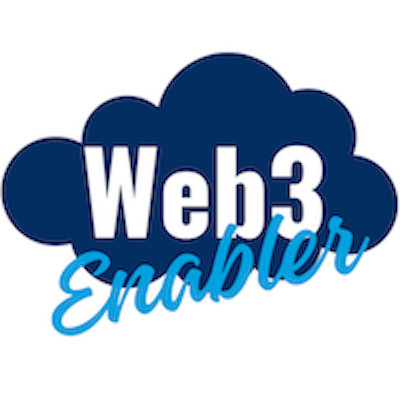The crypto ecosystem continues to evolve rapidly. But trust remains a key challenge for mainstream adoption. For individuals and enterprises alike, building trust in crypto holdings is essential for long-term success and resilience.
Another Recent DEX Hack Uncovered
In a recent episode of the Real World Blockchain podcast, Web3 Enabler’s marketing manager Hugues Marty addressed this very issue. The episode, titled “MASSIVE DeFi Exploit: $260M Stolen on Sui! (Cetus DEX Hack Exposed)”, investigates a serious security incident. Hugues describes how the recent Cetus decentralized exchange (DEX) hack. This hack resulted in $260 million being stolen on the SUI blockchain network.
This hack served as a wake-up call for the crypto community. The event also reinforced the need for transparency, safeguards, and accountability in decentralized systems.
How Blockchain Payment Payments Addresses Related Risks
Fortunately, Web3 Enabler offers innovative tools to combat these threats. Businesses using Salesforce Blockchain Payments benefit from multiple layers of trust. Integrations with BitRank Verified and Bridge help ensure safety and regulatory compliance. These tools verify addresses, track suspicious activity, and analyze transactions in real time.
BitRank Verified scores wallet addresses based on risk levels. This lets organizations reject or flag interactions with questionable addresses. Bridge.xyz enhances the visibility of crypto payments, showing proof of funds with compliance data. These tools improve decision-making and reduce fraud exposure.
Together, they form a strong foundation for building trust in crypto holdings. Salesforce users can now safely manage digital payments without compromising on regulation or usability.
Recent developments in U.S. legislation also contribute to consumer protection. The Stablecoin Clarity Act aims to provide clear rules for stablecoin issuers. It outlines capital requirements, auditing standards, and reserve transparency. This clarity gives both users and institutions more confidence in stablecoin use.
The act’s framework boosts reliability. It supports responsible innovation while discouraging rogue actors and unstable protocols. As a result, more users feel safe transacting with digital assets tied to fiat currency.
Web3 Enabler embraces this shift. The company actively supports stablecoin-based solutions in its enterprise offerings. Users can send, receive, and track stablecoin payments within Salesforce. These tools promote transparency and ease of use, which helps build institutional trust.
Still, no system is perfect. That’s why Web3 Enabler emphasizes continuous education and threat awareness. As Hugues Marty discussed in the podcast, every user must understand risks. Protocol flaws, social engineering, and market volatility require constant vigilance.
Fortunately, building trust does not mean giving up decentralization. Instead, it means creating systems that support autonomy and accountability. Real-time wallet scoring, blockchain intelligence, and legislative support all help users navigate this landscape.
With each innovation, trust grows. Transitioning to crypto becomes less risky and more practical. This transformation reflects a shared commitment to integrity, transparency, and sustainability.
In conclusion, building trust in crypto holdings demands both technology and responsibility. Web3 Enabler leads this charge through intelligent integrations and proactive governance. As regulatory frameworks evolve, users will gain even greater confidence.
Building Trust in Crypto Holdings
Our Digital Asset Wallet for Salesforce product to empower financial advisors to simply, safely manage their clients’ crypto portfolios.
Start your journey toward trust-based crypto adoption today. Learn more by booking a call with our team.







